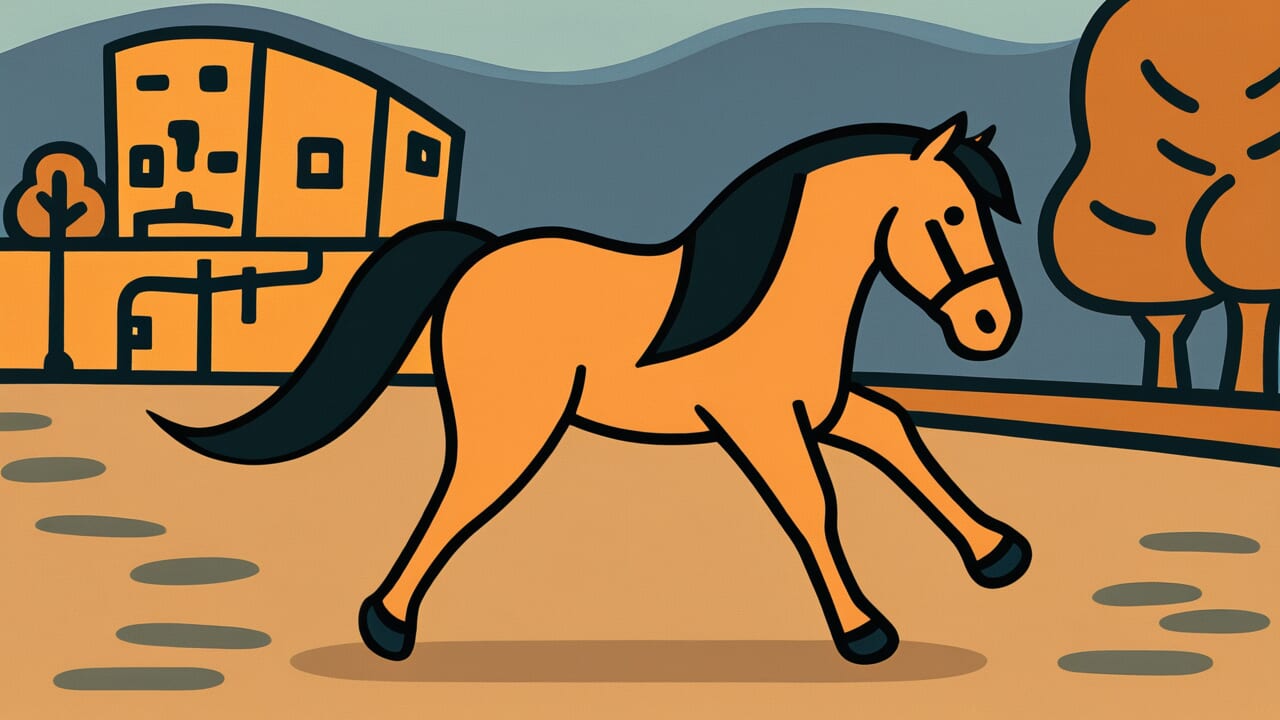How to Read “A horse without quirks won’t go”
Kuse naki uma wa yukazu
Meaning of “A horse without quirks won’t go”
This proverb means that people who seem perfect and flawless are often not very useful in real situations.
At first glance, someone without any faults seems easy to work with and unlikely to cause problems. However, when they face truly difficult work or major challenges, such people often fail to perform.
In contrast, people with some quirks or flaws tend to have stronger personalities and willpower. They tackle difficult situations with persistence and often achieve great results.
People who are too perfect suppress their own opinions and individuality too much. This means they lack the determination and creativity needed when it really counts.
This proverb is used when evaluating or hiring people. It teaches that you should choose someone with personality and ability to take action, even if they have some flaws, rather than someone who only appears perfect on the surface.
Origin and Etymology
The exact source of this proverb is unclear. However, it likely came from people’s experiences during times when horses were used daily for farm work and transportation.
Horses have been essential to Japanese life since ancient times. People worked with horses every day for farming, carrying loads, and travel. Through this, they came to understand horses deeply.
They made an interesting discovery. Horses that seemed perfect were often useless for actual work.
A gentle, obedient horse with no quirks certainly seems easy to handle. But when carrying heavy loads, traveling rough roads, or running long distances, horses with some spirit or unique habits actually worked harder.
Horses with quirks had their own will and personality. This connected to their persistence and strength in difficult situations.
Through daily interaction with horses, people discovered a truth that applies to human society too. People with some flaws or quirks are actually more reliable and accomplish bigger tasks than those who seem perfect.
This practical wisdom has been passed down as a proverb.
Usage Examples
- That new employee is a bit unusual, but a horse without quirks won’t go, so maybe we should have high expectations
- I hired someone with failure experience rather than someone with a perfect resume, because a horse without quirks won’t go
Universal Wisdom
The proverb “A horse without quirks won’t go” offers deep insight into human nature. Why can’t people who seem perfect actually accomplish big tasks?
It’s because truly valuable work always involves difficulties and unexpected obstacles. What’s needed in such situations isn’t textbook perfection.
You need the ability to think for yourself, sometimes break conventions, and keep challenging persistently. This power comes from individuality and quirks—from “being yourself.”
People who aim too much for perfection tend to fear failure, avoid risks, and choose safe paths. But truly valuable achievements lie outside such comfort zones.
People with quirks and flaws have already accepted their imperfect selves. This means they can challenge themselves without fearing failure.
What human society needs is not superficial perfection. It needs the courage to face difficulties and the creativity to solve problems from unique perspectives.
Our ancestors weren’t fooled by the illusion of perfection. They had the eye to recognize people’s true value. This proverb continues to teach us the essential standards for evaluating people.
When AI Hears This
Physicist Prigogine’s dissipative structure theory revealed the conditions for ordered systems to emerge. Surprisingly, it showed that “nothing is born from complete uniformity.”
When you drop milk into coffee, beautiful swirl patterns form. But once completely mixed, no movement occurs. In other words, movement and change always require “imbalance.”
A horse’s quirks have the same structure. Imagine a horse that’s perfectly symmetrical, with every muscle equally developed and no personality bias.
This horse seems ideal at first glance. But it actually has no specific response patterns to external stimuli. In other words, it lacks “biased pathways” to concentrate energy in particular directions.
A running horse always has a dominant leg and quirks in how it turns. This asymmetry creates the structure that efficiently converts energy into forward motion.
The same applies to humans. Someone with passion biased toward specific fields accomplishes bigger tasks than someone perfectly balanced in all directions.
This isn’t just philosophy—it’s the physical law of energy flow created by non-equilibrium states. The non-uniformity called quirks breaks stagnant equilibrium and generates the driving force to move forward.
Perfect symmetry is beautiful, but it’s the beauty of a motionless crystal.
Lessons for Today
Modern society tends to demand too much perfection. Social media displays lives that look perfect. Workplaces demand perfect work. We desperately try to hide our flaws.
But this proverb teaches us something important.
Your quirks and flaws are not shameful. They are your individuality and the source of your power in difficult situations.
Rather than using energy to pretend to be perfect, try focusing on making the most of being yourself.
This teaching is also important when evaluating others. Don’t judge only by perfect resumes or safe interview answers.
Look at the person’s individuality, passion, and what they learned from failures. Among people who are a bit different or not perfect, you might find truly valuable talent.
Don’t fear being imperfect. Your quirks are your unique strength that no one else can imitate.



Comments